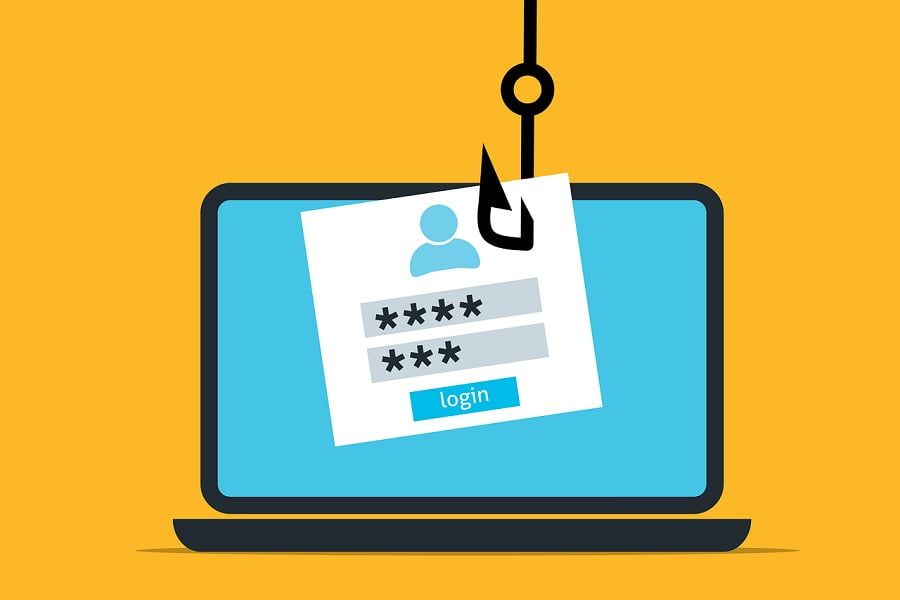Spam – what is it and how to protect yourself from it?
The Internet is present in our lives at almost every step, although we do not always realize this. Its development ensured the enormity of possibilities – Not only for a single user, but also for whole companies. Without it, normal functioning would be basically impossible, but despite many advantages – Using the network also exposes us to some dangers. One of them is Spam, probably everyone has already met with. What is it actually and how to protect yourself from it?
Spam – what does it mean?
SPAM is simply unwanted messages, which come to us. They are most often sent to many people at the same time, so they are in no way personalized – Everyone receives messages with identical content. Admittedly, this concept is most often associated with those that go to our mailbox, but they may also apply to SMSs, internet messengers, etc.
SPAM definition – where it came from?
Let’s start with the fact that spam is also a name canned pork. This one was produced without a break from the 1930s by the American company Hormel Foods. At first she was called Shoulder Prok and Ham, But the name has been shortened to increase the attractiveness of the product. Moreover, this one became the basic element of the nutritional rations of the American troops during World War II, which probably strongly influenced its cultural importance. The only question is what the common ground has with unwanted messages?
Most likely such definition She is associated with the sketch Monty Python, in which the customer, wanting to place an order in the restaurant, learns that there is a hammer in each dish and is able to avoid it in any way. Sketch ends with the Viking song, in which they repeat the word „ spam ” drowning out the conversation.
Why do we get spam?

Spammers, Because that’s what the names of people who send unwanted messages most often decide on such actions to achieve a financial advantage. It is a very simple way to easily reach a large group of recipients. Therefore, very often these are ads of specific services or ordinary SCAM, which aims to get money from us.
Where spammers come from addresses
SPAM that we receive most often comes from the fact that we just don’t care about our sensitive data such as e-mail address, phone number, etc. Just look at internet forums and discussion groups to see how many users give them by asking for contact. Added to this are registration on various suspicious pages, where we agree on receiving such messages by setting up an account. That is why it is worth checking a given service before registration or entry to the newsletter. Alternatively, set up an email that will only be used to set up accounts on such „ suspects ” pages. In this way, we will gain access to the content of interest to us, and at the same time reduce the risk of obtaining spam.
Another popular spammer method is also to send unwanted messages to typical company addresses. It is relatively simple, because these are most often created according to a specific scheme. As a rule, these are words „ contact ” or „ office ”, which precede the name of the internet domain.
What threats bring spam
Unwanted messages can be divided into three main groups:
- marketing – The basic type of spam, which is not associated with virtually any major danger, but still annoying. They are usually advertising that we usually don’t interest at all, but we lose free time to read and remove them. However, in extreme cases, they can even load the server and clog our mailbox,
- phishing – A much more serious type of spam, whose main task is to extort our data, thanks to which a cybercriminkeeper may, for example. access our bank account and steal money. Most often, this type of message contains links to pages requiring logging in, which very often resemble the real ones.
- containing harmful software – Another type of spam, which may be associated with unpleasant consequences, because by opening such a message we can install on your computer, e.g. viruses, Trojans, spy programs, etc.
How to protect yourself from him?
We will probably never save ourselves from spam, but by following some rules we can significantly reduce it. What is worth paying attention to?
- Serve the real address only on trusted websites that we regularly use,
- read the information on how to use our address. Interestingly, even when ordering something in front of the Internet, we do not have to agree to receive advertising materials, although such consent is often marked automatically,
- on internet forums and discussion groups, do not provide the e -mail address in the actual form. If we want it to be available, it is better to save it in the form, e.g. name [monkey] domain.pl. In this way, we will protect yourself from scanning robots in search of addresses, and the user will know how to save it correctly,
- Consider setting up an additional postal address or alias for websites that we use very rarely or once.
- use the mailboxes offering the anti -spam filter.
Summary
Spam is not only annoying, but also often a dangerous phenomenon that can be associated with really unpleasant consequences. Unfortunately, we will never be 100%protected from unwanted messages, but it is worth taking all steps to at least limit them. Thanks to this, we will not only save our time needed to remove them, but also reduce the potential risk associated with opening.
You often get spam on your boxes? How do you deal with him? Share the opinion in the commentary.

